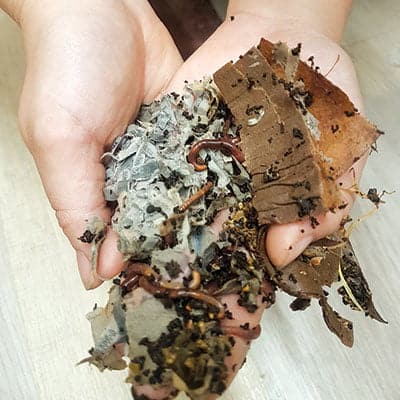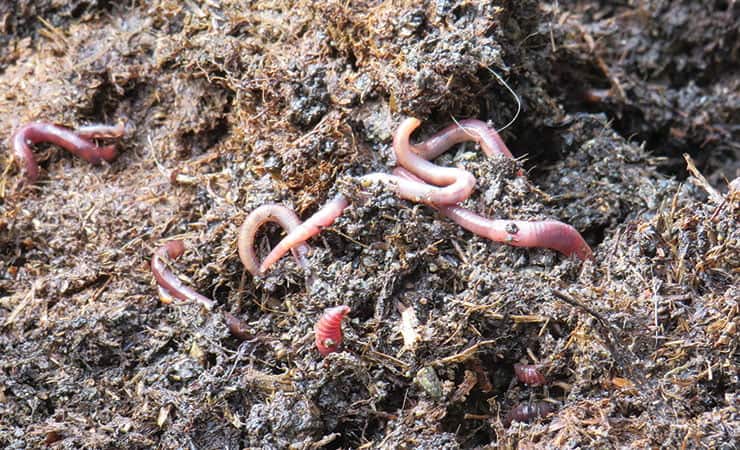Yukon Innovation Prize finalist Sabrina Clarke was a worm composting novice when she first moved to Montreal. In fact, the city didn’t have a composting program at all and residents had to devise their own solutions. Clarke lucked out by developing an idea she’s parlayed into a new project, Yukon Wigglers.

“A friend [in Montreal] gave me a bin with worms and said we’d sort it out,” Clarke said. “That was six years ago.”
“When I got back, I found in Whitehorse it was difficult to find worms, unless you knew someone who was doing it already.”
Clarke said that composting worms can be a boon to growing in the short summer season in the territory, as it is a good way to add nutrients to the soil. At the same time, she has found there are some hurdles to taking advantage of worm composting, particularly for individuals who don’t have a secluded space in the backyard. Most worm composting is done in plastic bins that are unattractive and create storage (and smell) issues.
“That’s where I got Fabian involved because most (bins) are in plastic and hidden,” Clarke said of her partner Fabian O’Connor-Brook. “We want to make it so you don’t hide it.”
O’Connor-Brook crafts the wooden boxes designed for composting with the idea that they want to create something that could be on people’s kitchen countertops. In addition to choosing a modular design for stacking, the two have carefully selected construction materials.
“The goal with worm boxes is to use local materials,” he said. “Use wood milled in town eventually. Limit materials from Outside, like nails and screws. We’re using a local beeswax agent to join and smooth the surface.”
With composting becoming a major component of waste diversion, the scalable aspect of design presents options for people who can’t do things like residential composting, or who just want good soil said Clarke.
“For every square foot you’d have four worms,” she said. “In the U.S., I’ve seen it scale up to farms and golf course to sell worms … my eyes get wide when I think how many farmers would be interested in good soil. It’s cool to be trying out new methods.”
Worm composting is limited in the material that can be composted, especially given the goal of having the boxes in kitchens. Mainly, meat and greasy food isn’t compatible and would create a bad smell.
“It would take home kitchen scraps, veggies and soup leftovers,” Clarke said.
“A lot of worm food is fibre, so newspaper, cardboard and egg cartons,” added O’Connor-Brook.
According to Clarke, the worm composting box also has an advantage over conventional backyard composting and can also help replace fertilizer in Yukon yards.
“I would treat it similarly to soil you’d find at the store,” she said. “It’s different than the backyard; more microbial and better for nutrients. It provides higher quality soil in smaller amounts.
“It also solves some of the concerns with animal attractants in backyard composters. It also helps deal with nitrogen in the soil.”
The next step for Yukon Wigglers is to make more boxes. Clarke and O’Connor-Brook expect to launch worm composting through a crowd-funding page, but anticipate that it will be predominantly local to start.
“Worms are very hard to ship,” Clarke said. “But the boxes themselves can be shipped and work with locally sourced worms.”
The 2019 Yukon Innovation Prize is presented by the Cold Climate Innovation Centre at Yukon College and the Department of Economic Development. The four finalists were selected for the high commercialization potential. They were provided $10,000 to further develop their idea and the prize winner will be announced in late June and will receive a further $60,000.




